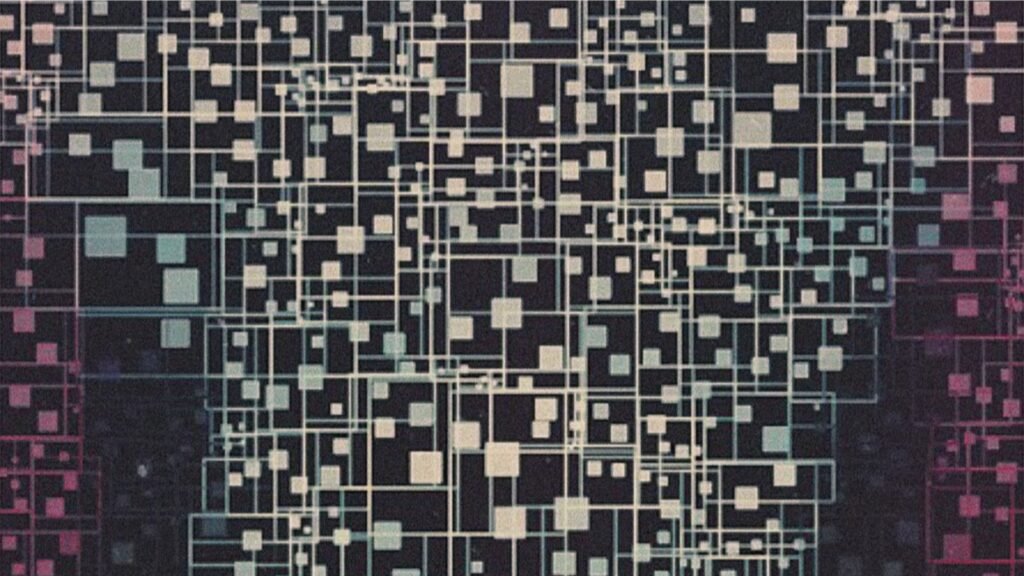
Ralph Kinsella contacted me through this blog and emailed a link to his just-released Bandcamp-only Abstraction EP. The tunes blew me away — this was an ambient music I wanted to hear, melodic and optimistic, dynamic rather than constant, and featuring guitars, both processed and clear. I wrote about it in a previous #Worktones segment, giving the Abstraction EP high marks. But, behind the scenes, I emailed Ralph asking if he thought of following up with an album. And if he’d like my 8D Industries imprint to release it.
Ralph responded with the completed demo of his album Lessening. Though recorded at the same time as the Abstraction EP, Lessening felt like a step forward. Hearing Ralph’s music at a 50-minute stretch suited his sonic world-building. The music is glistening and evolving, taking on suggestive textures that convey movement from place-to-place. I’m loath to bring up ‘the lockdown,’ but these hopeful, outward-reaching tones are an antidote to seclusion.
Today Lessening is available on all the streaming platforms as well as Bandcamp. I can’t think of a better way for 8D Industries to close out this year of uncertainty — it’s an album of hesitant lightness and a resolve to keep going.
I briefly spoke to Ralph Kinsella about this album, his music, and the beautiful part of Scotland where he resides.
——————
I take it Abstraction is your debut under your own name. If so, what’s your background before that? I believe you were in a band or bands, correct?
Ralph Kinsella: Abstraction and Lessening are the first records I recorded alone, and roughly at the same time, during the COVID-19 lockdown. They are siblings in that way, separated at birth. I wanted to do nothing more than capture something — a feeling, an emotion, maybe. Certainly, the unassailable need for extended and stretched forms of expression. Hopefully, listeners might relate to feelings of detachment and piercing melancholy, as I felt when making the records.
I spent a long time improvising and experimenting with sounds in the lead-up to these releases. Before making these sounds, I was in various bands (mostly lo-fi bedroom rock).
Tell me a little about your recording process. Anything surprising, either in technique, location, or even the gear you use? Do you approach the music with a ‘philosophy’?
I record everything in a spare bedroom, and all the music starts with improvisation — usually on guitar (or synth) with a series of effects pedals. I try to use as little equipment as possible: a Stratocaster, harmonium, delay pedals, a cheapo synth, and a good synth. I use Logic Pro essentially as an eight-track. Limitations are the most important thing for me when working alone. So I avoid using any plugin instruments or too much DSP after recording. Like Keats, the philosophy is ‘truth’ – even though no such thing exists.
As a guitarist, how did you fall into this ambient style of music? Who are your inspirations/long-distance mentors for developing this sound?
The Swedish record label, Häpna, changed my life as a teenager. I’ve been obsessed with experimental music with post-rock leanings ever since. I’d go to Monorail Records in Glasgow and pick up anything new from the label (usually based on the cover art – the aesthetic curated by the label/artists was wonderful). I found the record labels and artists contributing to this creative ecosystem inspiring. It showed me a different model, one centered on creative expression.
At the moment, I enjoy listening to (and trying my best to understand) the music of Elaine Radigue, Francis Dhomont, Loren Conners, and, most recently, Cucina Povera. I think they’ve all been unknowingly collaborating with me for a while now.

When I reviewed the Abstraction EP, I pegged it as “bright, gentle, and optimistic.” Do you think that’s a fair assessment? If so, how do you arrive at that ‘vibe’ when a lot of ambient electronic music nowadays is dark and droney? And the world being dark and droney, too?
You’re right – I’m always looking for a way to make instrumental (and more left-field music) without the ‘higher access mode’ approach (by that I mean, the “my music is hard to listen to, therefore it must know more than you do” approach). I like to thread/tread fine ground between pop/experimental and abstract/structure.
Tell me a little bit about Dumfries and Galloway. I know much of The Wicker Man was filmed in the vicinity, which is wild. How does the landscape affect the music?
Liminal, fringe spaces are always interesting places for creativity. The way that land visually falls away into the sea in the imagery of The Wicker Man has a similar energy to the kind of stuff I’m interested in: where rural and (semi-rural) Scotland uncomfortably meet urban areas. The boondocks, interspersed with fragments of debris and flickering housing scheme street lights. These places (and the artistic exploration of these places) imbue my work.
Is there an ideal listening environment or frame-of-mind for Lessening?
The records (as with most music of this genre) require a certain amount of engagement. The pieces are musical conversations – they want to start a dialog with the listener and, I think, reject passivity. I like the poetics of the bedroom for music listening – that’s where I created the music, and that’s where it probably resonates best.